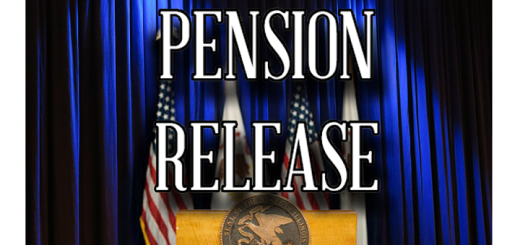Retired Government Employees Receiving $100,000+ Annually
Chicago — Taxpayer Education Foundation (TEF) today released the results of its 13th annual Illinois state pensions report. This new report analyzes government-retiree pensions of Illinois’ General Assembly Retirement System (GARS), Judges’ Retirement System (JRS), Teachers’ Retirement System (TRS), State Universities Retirement System (SURS), state employees’ retirement system (SERS), and the Illinois Municipal Retirement Fund (IMRF). The report demonstrates that the Pritzker administration has allowed the Illinois pension crisis to worsen.
The unfunded government pension liabilities Springfield politicians placed on the shoulders of Illinois taxpayers have grown. The amount liabilities grew was over $2.1 billion, bringing the new total to $143,593,104,031 for 2019. Keep in mind that these are the numbers the state of Illinois has issued. Moody’s estimates the Illinois pension liabilities to be roughly $100 billion higher.
One look at these gargantuan pensions illustrates why the situation is deteriorating. Leslie Heffez retired from the university of Illinois at Chicago (UIC) at the age of 55. His current annual pension is a mind-boggling $616,624. This former government employee is the first person in the six major Illinois pension funds to rake in over $600,000 a year. Heffez is on track to receive $21,093,181 by the time he is 85, thanks to a 3 percent compounded cost of living adjustment (COLA) Illinois Gov. Jay Robert “J. B.” Pritzker declines to do anything about.
The compounded cola is the most dangerous part of the Illinois pension scam. The three percent cola can double a single government pension in 24 years. This happens often because the average Illinois government employee retires at 61. The IRS estimates that for a person 65 years of age, his estimated life expectancy is 85. We can expect many government pensions to double by that age.
A central figure responsible for the pension crisis is former Illinois governor James R. Thompson (R), one of the worst tax-raisers in Illinois history. Thompson also retired at age 55 and currently receives an annual pension of $161,152. Thompson was one of the key members of the state government who started the pension crisis. If not for his 3 percent compounded cost of living increase for retired Illinois government employees, the crisis would not be as bad as it is.
An example of the crisis worsening is how the number of millionaire government retirees is growing. There are now 2,572 more government retirees receiving over $100,000 compared to last year. This brings the new total to 22,053 retired government employees receiving over $100,000 a year.
Additionally, there are now 111,809 Illinois government pensioners collecting more than $50,000 in taxpayer funded payments yearly. This is an increase of 4,717 from last year, that total being 107,092. The average annual social security pension for taxpayers in 2019 is $17,532.
The taxes to support these outrageous Illinois government pensions are driving taxpayers out of Illinois. Almost all of the last $5 billion-dollar income tax increase was used to prop up the state pension funds. This is why Illinois governor Pritzker wants to pass the graduated income tax increase amendment, a huge income tax increase for Illinois taxpayers. Instead of seeking pension reform, Pritzker wants another massive income tax hike.
There is no reason to believe this amendment will only affect the “rich.” Pritzker passed a multibillion-dollar regressive tax increase including the recent 19 cent Illinois gasoline tax hike. It is estimated that Pritzker’s gasoline tax will extract from Illinois taxpayers $1.2 billion dollars more a year. These taxes affect Illinois’ most struggling residents disproportionately. There is every reason to believe that future tax hikes planned by Springfield politicians will affect the state’s middle class, and will be used to further prop up the state’s lavish, gold-plated pensions for retired government employees.
Rather than placing more taxes on the backs of the state’s most vulnerable citizens, and plotting to increase taxes on the state’s middle class, Pritzker should explore significant reforms for the state’s bankrupt pension plans for retired government employees.
Click for top SERS 2019 Pension Grid
Click for top GARS 2019 Pension Grid
Click for top IMRF 2019 Pension Grid
Click for top JRS 2019 Pension Grid







